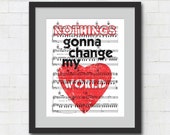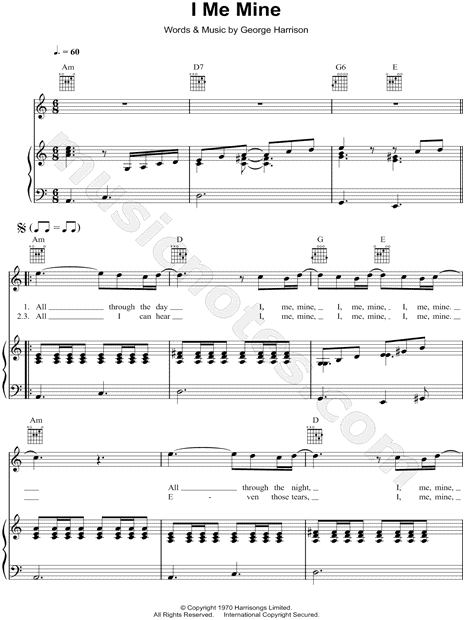

So it’s “Blackbird’ to “Daffodils” in three encounters.Īgainst all the odds, the Beatles have endured. Russell had enjoyed childhood meetings with William Gladstone, who himself used to breakfast with the elderly William Wordsworth. Just as remarkably, Paul McCartney once called in on Bertrand Russell, who lived down the road from him. So we can go from Charles Darwin to John Lennon in just three handshakes. For the first ten years of his life, he had known his great-uncle, Charles Darwin. Williams was at that time 85 years old, and died three weeks later.

In 1958, Mason had played the flugelhorn at the premiere of Vaughan Williams’ 9th Symphony, in the presence of the composer himself. The leader of the brass section on All You Need Is Love was a 41 year old Professor at the Royal College of Music called David Mason.

Though they once seem so temporary, they now concertina time in the most extraordinary way.

If you go back fifty years from the year 1957, when John Lennon first bumped into Paul McCartney, you arrive in 1907, when King Edward V11 was on the throne, Theodore Roosevelt was in the White House and the most popular music was by Scott Joplin and Enrico Caruso. This year is the fiftieth anniversary of the Beatles’ break-up. Many of these groups-The Tefeatles from Guatemala, Rubber Soul from Brazil, the Nowhere Boys from Colombia, Abbey Road from Spain-have been together longer than The Beatles: Britain’s Bootleg Beatles and Australia’s Beatnix have both been going for forty years or more. When I was in Liverpool for the annual Beatles festival, I watched The Bertils from Sweden, Best Beat from Serbia (crowned “one of the 30 most prominent Beatles tribute bands on the planet” by Newsweek), The Bits from Hungary, Clube Big Beatles from Brazil and The Norwegian Beatles, who came billed as “probably the world’s northernmost Beatles tribute band.” There are now reckoned to be over a thousand Beatles tribute acts across the globe. Thinkingly or unthinkingly, The Beatles are indeed an accepted part of daily life all over the world. But over half a century later, and well into the 2000s, it’s safe to say that Magee got it wrong. My old Latin teacher would no doubt have identified this as an example of a question expecting the answer ‘no’. “Does anyone seriously believe” he asked, “that Beatles music will be an unthinkingly accepted part of daily life all over the world in the 2000s?” Back in 1967, the MP and philosopher Bryan Magee ventured a prediction in the Listener magazine.


 0 kommentar(er)
0 kommentar(er)
